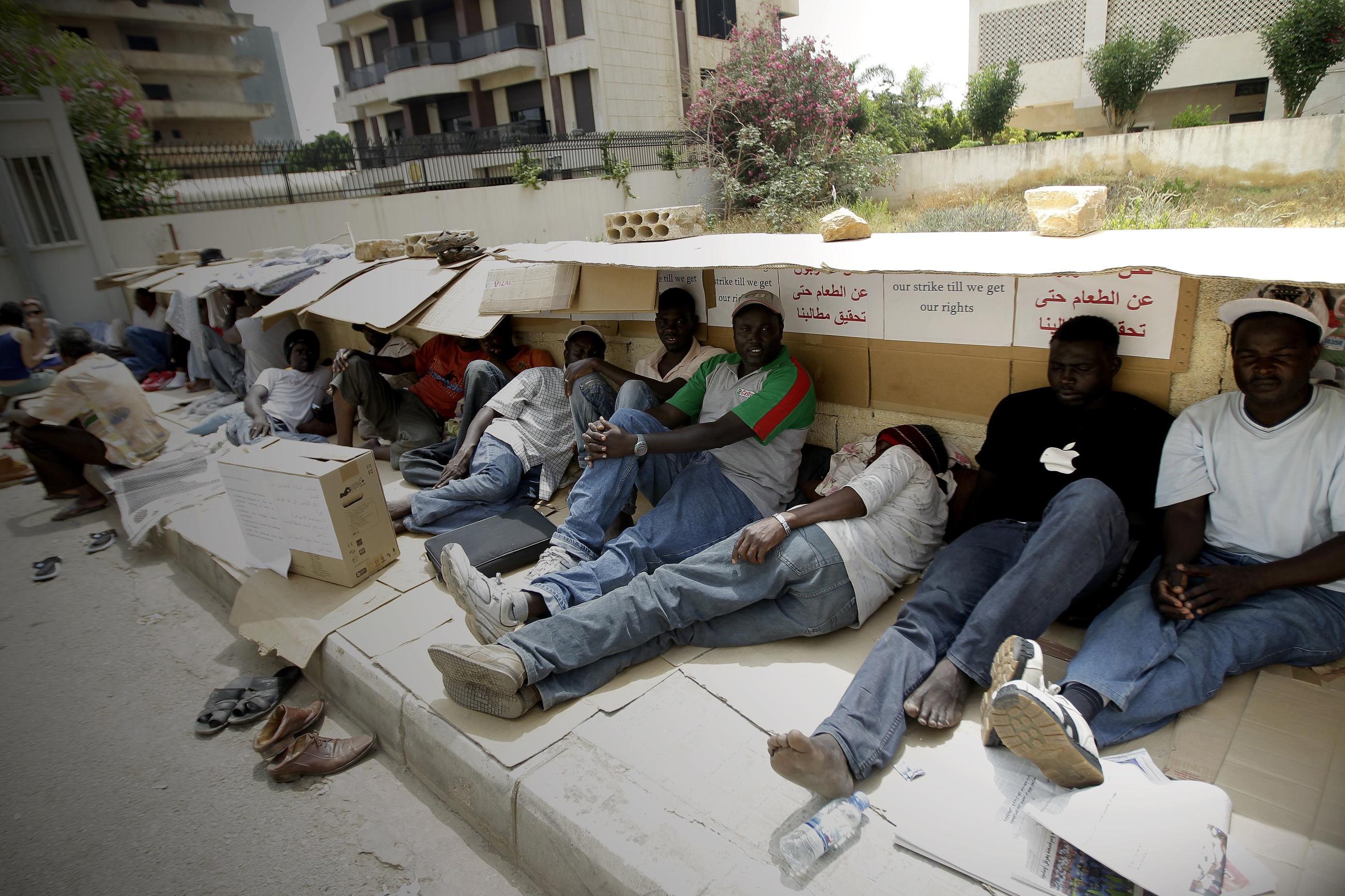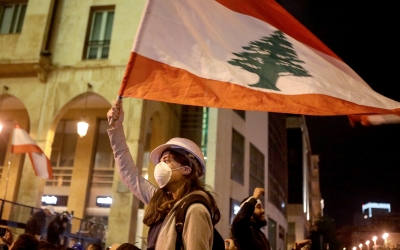Sudanese activist risking deportation from Lebanon could be tortured

A Beirut-based Sudanese activist is at risk of being deported to Sudan despite threats to his safety there, activists have warned.
The Anti-Racism Movement (ARM), a grassroots movement of Lebanese activists and migrant workers, said on Friday that Mubarak Ibrahim was detained by Lebanon’s General Security Organisation.
They said he was given his deportation orders on 13 February, following unsuccessful attempts at seeking asylum with the United Nations's refugee agency (UNHCR).
He has been in Lebanon for 21 years.
Ibrahim was previously deported as a legal resident from Lebanon in 2016. In a filmed testimony in January, Mubarak Ibrahim said he was handcuffed and detained upon his arrival in Sudan. ARM added he was subjected to torture and ill-treatment.
New MEE newsletter: Jerusalem Dispatch
Sign up to get the latest insights and analysis on Israel-Palestine, alongside Turkey Unpacked and other MEE newsletters
ARM’s Advocacy and Communications Manager Zeina Ammar said Ibrahim is subject to “evident political persecution”, and that UNHCR should reopen his case, “given all the human rights violations committed against Mubarak by the Sudanese authorities.”
In response to MEE’s inquiries about Mubarak Ibrahim’s case, UNHCR said they could not comment on individual cases “for reasons of confidentiality”.
“We assess every single case thoroughly and individually, in accordance with international law,” they said. “Individuals are always counselled and kept informed throughout the process.”
Ibrahim is one of almost 2,000 Sudanese asylum seekers and registered refugees in Lebanon.
“We have cases of defected military [personnel], human rights activists, and politicians who have damning information on war criminals,” Bilal*, a Sudanese activist told MEE. “They have not been recognised as refugees so far, and there has been neglect in providing protection.”
“There has been negligence in providing them with protection,” he said, adding that the key grievances of African refugees in Lebanon are healthcare and protection.
UN protests
Sudanese and other African refugees and asylum seekers have held protests at the UNHCR’s Beirut headquarters.
Some Sudanese saying they have been seeking asylum since 1997 and claimed Syrian and Iraqi refugees and asylum seekers applications for resettlement have taken precedent over theirs.
The UN agency, in response, says that all portfolios are treated equally regardless of nationality.
They say that they have been left to wait with no response, no right to legally work and no access to healthcare and other means of support.
Prolonged protests and sit-ins took place towards the end of last year and escalated after police officers took down their tents and arrested 10 protestors.
Even registered Sudanese and other non-Syrian refugees have been deported by the Lebanese General Security, the security institution that oversees the entry and exit of non-Lebanese nationals.
According to Human Rights Watch eight were deported in 2017, followed by seven in 2018.
Alongside ARM and other Lebanese organisations, Human Rights Watch said in a 2018 joint statement that arbitrary detentions have been commonplace with no right to appeal and with little to no access to legal representation.
Lebanon hosts over 900,000 Syrian refugees, approximately 180,000 Palestinian refugees, and 18,000 registered refugees of other nationalities.
It has not ratified the 1951 Refugee Convention, but is obliged under international law to adhere to non-refoulement principle, which prohibits states from returning an asylum seeker or refugee to a country where they risk facing persecution.
*Bilal’s name was changed for his protection.
Middle East Eye delivers independent and unrivalled coverage and analysis of the Middle East, North Africa and beyond. To learn more about republishing this content and the associated fees, please fill out this form. More about MEE can be found here.


